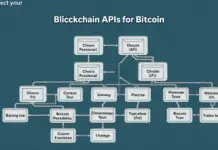Are You Overpaying Gas Fees on Your Cryptocurrency Transactions?
Did you know that in 2021, Ethereum users spent over $2 billion on gas fees? That’s a staggering amount, and for many new crypto traders, gas fees can be confusing and costly. Understanding how to optimize these transaction costs is crucial for maximizing profits in the volatile world of cryptocurrency trading.
What Are Gas Fees?
Gas fees are the costs required to execute transactions or smart contracts on the blockchain. Think of it as a fee you pay to get your transaction into the queue. They vary based on network congestion and the complexity of the transaction. If you’re wondering, “How can I reduce these costs?” you’re not alone.
1. Choose the Right Time to Trade
- Gas fees fluctuate throughout the day.
- Monitor gas prices using tools like EthGasStation or GasNow.
- Consider executing transactions during off-peak hours to save on fees.
2. Utilize Layer 2 Solutions
Layer 2 solutions, such as Polygon and Optimistic Rollups, enable faster and cheaper transactions by processing them off-chain. This can significantly lower your gas fees. For example, transactions on Polygon cost only a fraction of those on Ethereum’s mainnet.

3. Batch Your Transactions
If you’re planning to make multiple transactions, consider batching them into a single transaction. This approach minimizes the total gas fees, as you only pay once for the entire process instead of multiple times for individual transactions.
4. Optimize Your Smart Contracts
- For developers, writing efficient smart contracts can drastically reduce the gas costs associated with deploying and interacting with contracts.
- Implementing best practices in code can lead to more streamlined executions.
Conclusion: Take Control of Your Gas Fees
Optimizing gas fees is key to maintaining profitability in the world of digital currency trading. By timing your trades, utilizing layer 2 solutions, batching transactions, and refining your smart contracts, you can minimize costs and enhance your trading strategy. Start applying these tips today to see a real difference in your crypto expenses!
Note: This article does not constitute financial advice. Please consult with your local regulatory authority before making any cryptocurrency transactions.
Want to learn more about cryptocurrency optimization strategies? Check out our other articles on reducing gas fees and how to secure your crypto assets.

For more insights into the world of virtual currencies, follow virtualcurrencybitcoin.
Written by Dr. Emily Stein, a blockchain economist and advisor with over 15 published papers in the cryptocurrency field and lead auditor for several high-profile blockchain projects.




